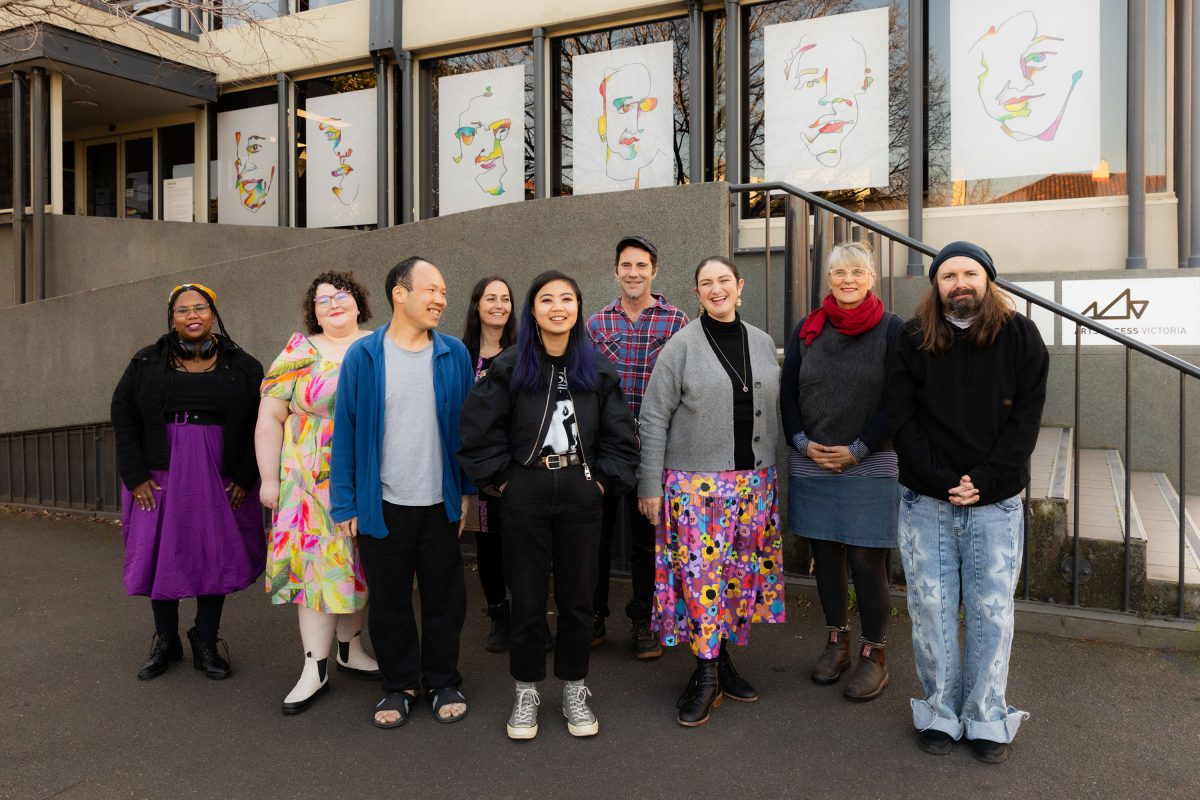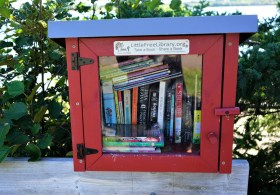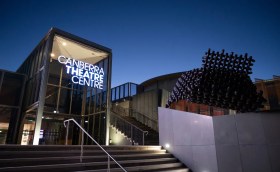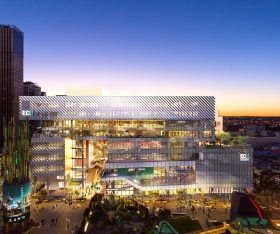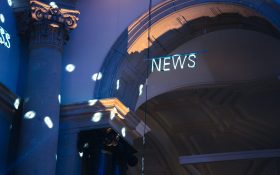Deaf and Disabled leaders from around Australia gathered in Melbourne/Naarm recently to shape the future of Disability Arts in Australia. The Evolving Arts and Disability in Australia Residency is a partnership between Arts Access Victoria and DADAA (Disability in the Arts Disadvantage in the Arts) with support from the Australia Council for the Arts. It was a week of discussions and critical conversations to help inform future directions in arts practice and advocacy in the sector.
Over 80 current and future Deaf and Disabled leaders applied to be part of the residency. Nine Deaf and Disabled leaders were selected. The participants selected were.
- Anna Molnar
- Beau Windon
- Ebony Wightman
- Harmonie Downes
- Irene Holub
- Jeremy Hawkes
- Margot Morales
- Michael Chan, and
- Rafeif Ismail.
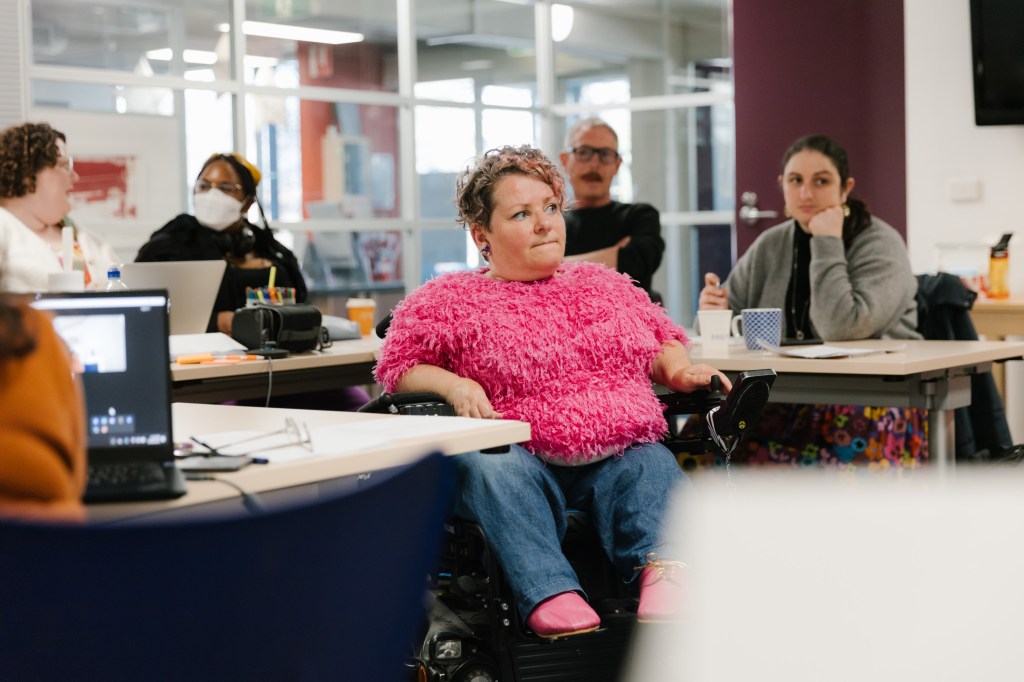
The residency was based at the Arts Access Victoria offices. Some of the participants or guest speakers joined us online. I was joined by David Doyle, Executive Director at DADAA, to host and facilitate the sessions.
Guest speakers included Fiona Tuomy (The Other Film Festival and Arts Access Victoria), Gaelle Mellis (Tutti Arts), Gayle Kennedy (Writer), Heidi Everett (Schizy Inc), Janice Florence (Weave Movement Theatre and Arts Access Victoria) and Kath Duncan (Performer, Writer).
Read: Putting accessibility at the heart of the arts
We gathered at a critical time for Deaf and Disability arts in Australia. It is only in recent years that Deaf and Disabled artists have had dedicated streams of funding for their work or been provided access costs as part of funding. Deaf-led and Disability-led organisations are still relatively new in Australia. With the Federal Government’s reform of the arts landscape, there is an opportunity to set the agenda for future directions.
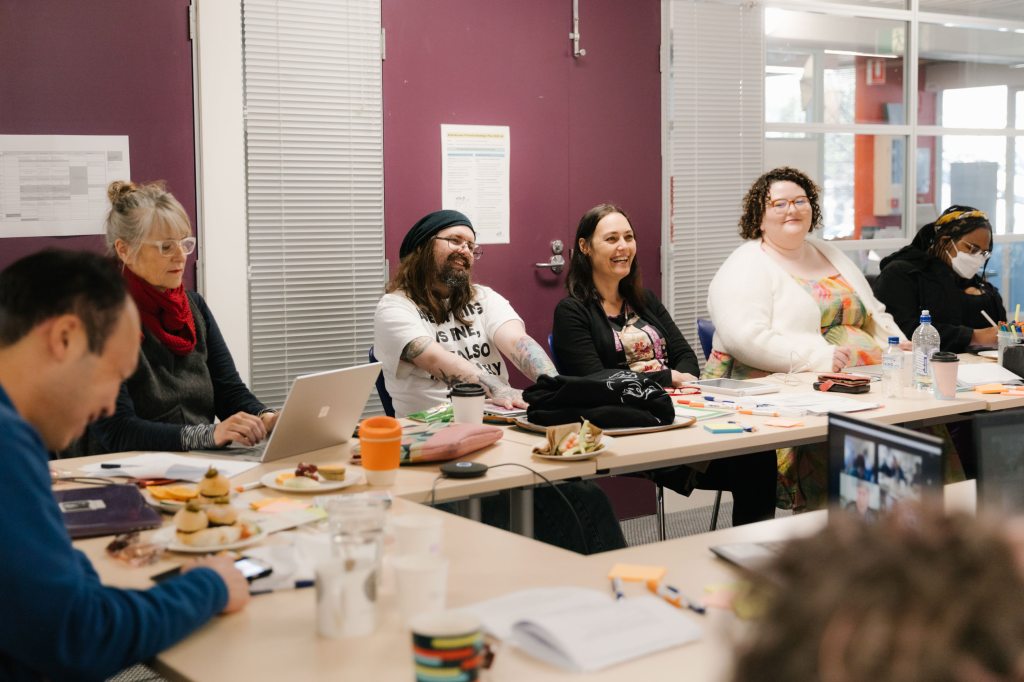
The power of gathering in a disability-led space
We acknowledged the significance of being in a Deaf and Disability-led space and what that meant for everyone. We met each other, introduced each other to our work and hope for the residency, and created a framework for communications and relations during the week.
From this foundation, we launched into joyful, robust, and urgent conversations. As David Doyle from DADAA remarked:
‘By the end of Day One: Delegates had agreed to stop apologising.
‘By the end of Day Five: Delegates had arrived at a collective politic, consensus, clarity of direction – a fierce position that is set to underpin where Australian Arts and Disability moves into the future.’
We debated models of disability leadership. We talked about the importance of authenticity, agency and accountability. And many spoke of the need for safer and more accessible pathways to access institutions and creative spaces, especially if they are from multiple marginalised groups.
We celebrated our strengths as Deaf and Disabled artists. Thinking through our own processes, unique to us, we made a commitment to sharing these processes with peers and allies.
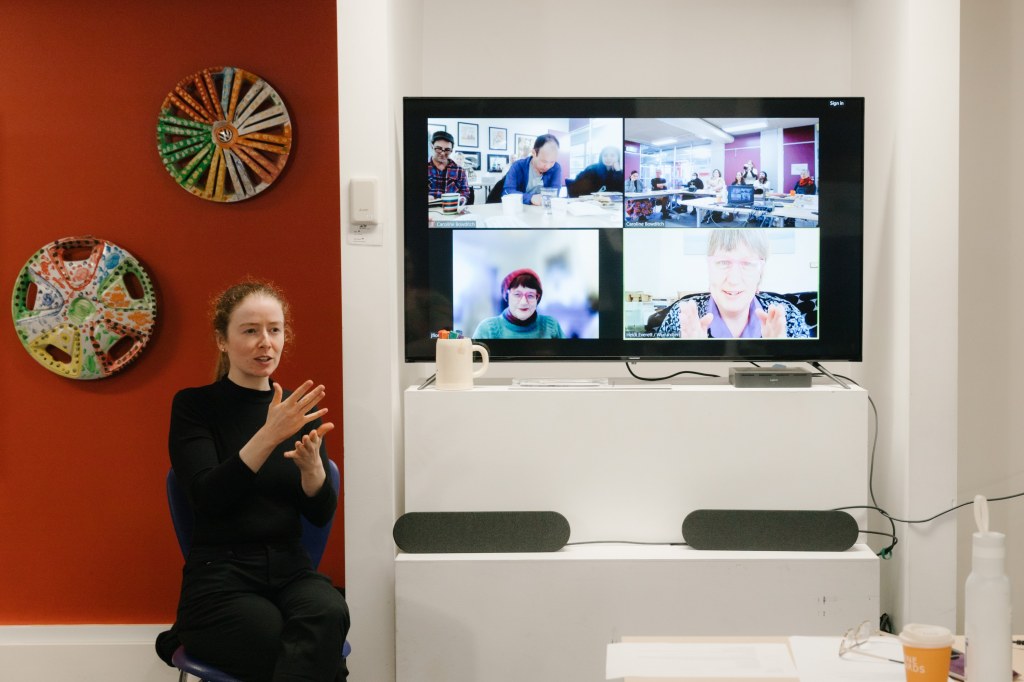
Where to from here? Future planning and directions
The conversations of the week were captured in many formats – through scribes, graphic notetaking, written reports and photography. We wanted to provide as many entry points and access to the conversations as possible during the week-long residency.
Arts Access Victoria and DADAA will now be collating and gathering all the insights and knowledge from the week. We will be sharing it with the Australia Council for the Arts. We are hopeful that this will play a part in the formulation of new ways of operating. We want to ensure organisations are embedding access into everything they do, and that Deaf and Disability leadership is part of the Australian arts future.
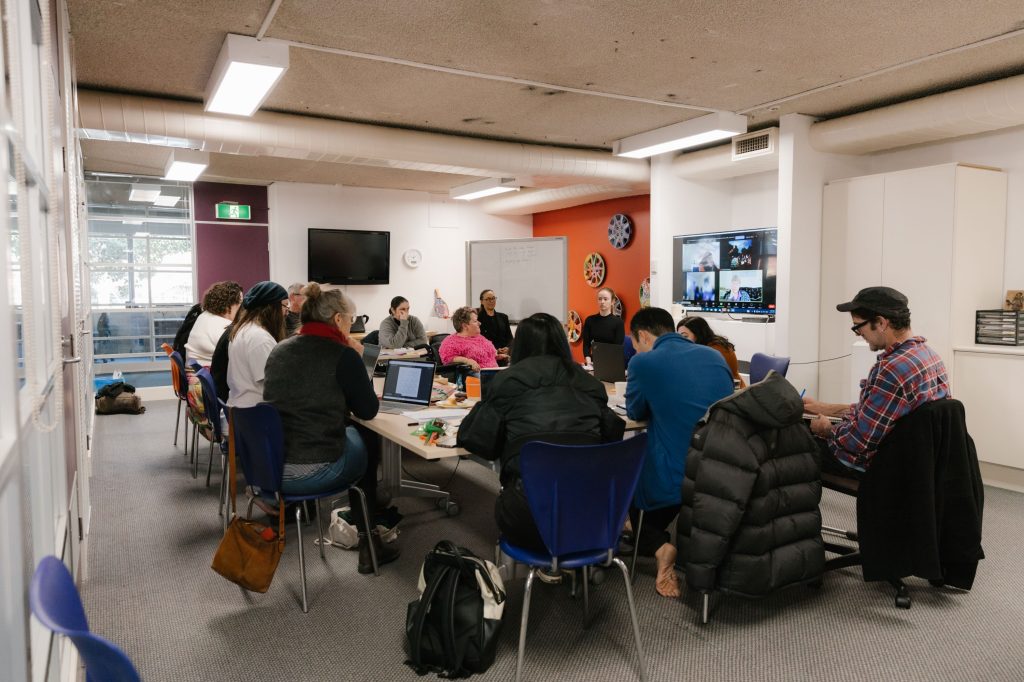
It was so heartening to be a part of the Evolving Arts and Disability in Australia residency. The changes I have witnessed in the last five years in the Australian arts sector have been huge. Despite this, we still have so much more to do to create equity in the cultural landscape.
The Evolving Arts and Disability in Australia residency was a shiny glimpse into what the future could be. After this momentous week, I have confidence that we can get there.
Artworks pictured on wall are Untitled (hubcaps) 1-6 by Robert Brown.
